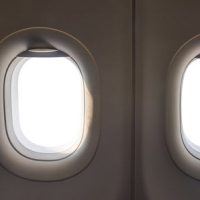Airlines & Consumer Law Violations

In January, the US Department of Transportation announced that airlines have regularly been violating consumer protection laws. There are thousands of complaints every year involving systematic failures to provide required credits to those who lost travel opportunities during the COVID-19 pandemic. Recent examples include Southwest Airlines canceling close to 16,000 flights to date and failing to compensate consumers for these canceled flights, as well as Air Canada being fined more than $4.5 for delaying flights.
While, under a 1958 law, passenger airlines are exempt from oversight by the Federal Trade Commission (FTC), as well as certain state consumer investigations, the tides are changing in terms of holding airlines responsible for consumer law violations.
Unfair & Deceptive Practices
Airlines are barred from engaging in unfair and/or deceptive practices, whereby “unfair” is characterized as ‘likely to cause substantial injury’ that is not ‘reasonably avoidable’ and the harm is not outweigh by benefits to consumers or competition, and a practice is deceptive if it is ‘likely to mislead a consumer’ who is otherwise ‘acting reasonably under the circumstances,’ where the dispute is over a product or service.
Violations of Contract of Carriage
State Attorneys General – including Ohio’s – are also currently urging Congress to pass legislation that would authorize state attorneys general to enforce state and federal consumer protection laws concerning the airline industry, as well as pass authority for oversight of the agency from the US Department of Transportation to the FTC.
Still, this doesn’t mean that passengers aren’t able to sue airlines directly over consumer protection violations, such as a failure to reimburse them for canceled flights. Typically, an airline’s contract of carriage mandates refunds for canceled flights, as well as reimbursement for associated costs due to the cancellation, such as hotel and meal costs.
What happens with a number of consumers is that their flight will be canceled – due to weather concerns, for example – and instead of offering comparable accommodations on another flight, the airline will simply offer airline credits to use on a future flight.
It is precisely this action that violates the contract of carriage, which states that when the carrier changes or cancels a flight, it will “accommodate the passenger on another flight” or provide a “refund,” and this will be done within seven business days of a refund request if credit card was used or 20 days if cash was used. This is based on Department of Transportation regulations, which indicate that when an airline cancels a flight, they immediately have to provide a refund. This does not translate to “credit” for a future flight, or even the assignment of frequent flier points in place of a refund.
Let Us Help You Today
If you have experienced a violation of your consumer rights, contact our Columbus consumer protection lawyers at the Kohl & Cook Law Firm LLC today to find out how we can help.
Sources:
reuters.com/business/aerospace-defense/us-plans-seek-higher-penalties-airlines-violating-consumer-protections-2023-01-05/
naag.org/policy-letter/attorneys-general-urge-congress-to-hold-airline-industry-accountable-and-increase-consumer-protection/
cbsnews.com/news/southwest-airlines-sued-for-not-providing-refunds-to-stranded-customers/
wptv.com/lifestyle/travel/southwest-airlines-lawsuit
